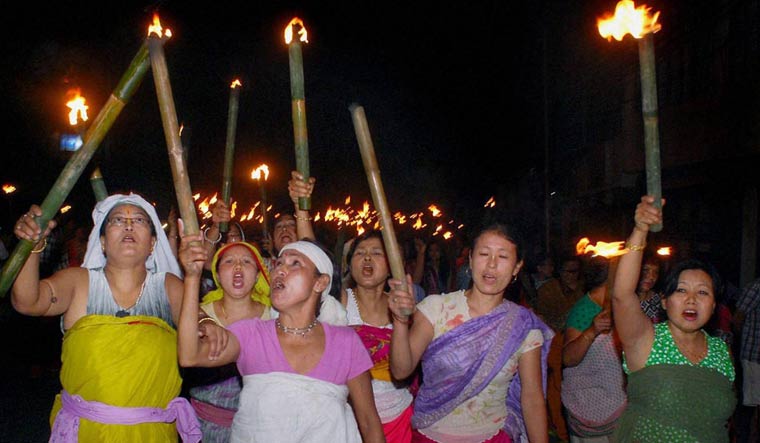The inner line permit (ILP) regime was extended to Manipur on Wednesday with President Ram Nath Kovind signing the order in this effect.
The decision comes two days after Union Home Minister Amit Shah announced in the Lok Sabha that the ILP would be extended to the northeastern state.
A notification in this regard was issued by the home ministry.
Manipur is the fourth state after Arunachal Pradesh, Nagaland and Mizoram where the ILP regime is applicable. The Nagaland government had issued an order on Monday extending the ILP to Dimapur. Dimapur had been out of the purview of ILP till then.
To visit states under the ILP regime, outsiders, including people from other states of India, need to take permission.
The ILP is essential for both visiting these states or staying there. There are different types of ILPs for tourists and those staying in these four states for purposes of employment. Outsiders are not permitted to overstay the limit mentioned in the ILP issued to them.
also read
- Will Ajay Kumar Bhalla's appointment as Manipur governor set the house in order?
- Manipur violence: ‘Provide details of buildings looted, encroached, burnt’, SC tells Biren Singh govt
- Mobile internet ban extended till Dec 3 in nine Manipur districts
- Manipur violence: 8 held over attacks on ministers’ residences, police station
- Is Northeast India transforming from regions of unrest to the ‘Gateway of South East Asia’?
The ILP regime has its roots in the Bengal Eastern Frontier Regulations, issued by the British Raj in 1873. The regulations were framed to protect the tribal communities of Assam, Meghalaya, Mizoram and Tripura.
The influential Meitei community in Manipur had been demanding implementation of ILP in the state. The Manipur Assembly, where the BJP leads a coalition government, had in 2018 passed a Manipur People’s Protection Bill that defines 'Manipuris' and 'non-Manipuris' and seeks to control flow of Indians from other states. The bill is awaiting the president's assent.
The North East Student’s Union (NESO), an umbrella group of students organisations in the northeast, has sought implementation of ILP in all northeastern states in the wake of the Centre's plan to introduce the Citizenship (Amendment) Bill.
(With PTI inputs)


